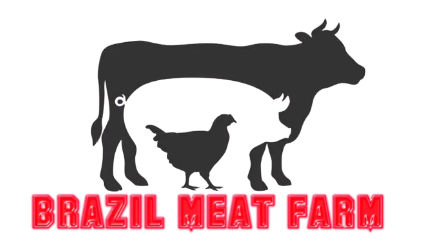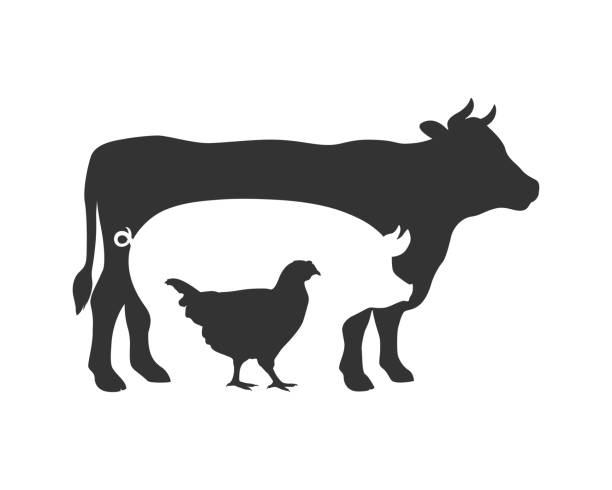Ensuring Excellence in Meat Processing: Best Practices and Standards
Meat processing At Brazil Meat Farm, we are committed to delivering high-quality meat products that meet global standards for safety, taste, and sustainability. As a leading player in Brazil’s meat industry, which exported $22.3 billion worth of meat in 2022, we understand that meat processing is a critical step in transforming raw livestock into safe, delicious, and market-ready products. This blog post explores how we ensure excellence in meat processing, detailing best practices, advanced technologies, and compliance with international regulations to cater to quality-conscious consumers and align with global food safety trends.
The Importance of Meat Processing in Brazil
Brazil is a global powerhouse in meat production, ranking as the world’s largest beef exporter and second-largest poultry producer. In 2022, the country processed over 27 million metric tons of beef, pork, and poultry, with 40% destined for international markets. Meat processing encompasses slaughter, cutting, deboning, packaging, and preservation, each step requiring precision to ensure safety, quality, and shelf life. At Brazil Meat Farm, we prioritize meat safety standards to meet the demands of consumers in over 150 countries, from the European Union to Asia, while adhering to Brazil’s stringent regulatory framework.
Best Practices in Meat Processing at Brazil Meat Farm
1. Hygienic Slaughter and Primary Processing
The foundation of high-quality meat production lies in hygienic slaughter and primary processing. At Brazil Meat Farm, our facilities in Mato Grosso and Paraná are designed to minimize contamination and preserve meat quality.
- Humane Slaughter: We use stunning methods compliant with the World Organisation for Animal Health (OIE) standards to reduce animal stress, which improves meat tenderness and flavor. Automated slaughter lines ensure consistency and efficiency.
- Chilling: Post-slaughter, carcasses are chilled to 0–4°C within 4 hours to inhibit bacterial growth. For beef, we use wet aging in vacuum-sealed bags to enhance flavor, while poultry is air-chilled to maintain texture.
- Quality Control: Each carcass undergoes visual inspections and microbiological testing for pathogens like Salmonella and Listeria. In 2023, our slaughter facilities achieved a 99.7% compliance rate with meat safety standards.
These practices ensure that raw meat enters the processing phase free of contaminants, setting the stage for Brazilian meat processing excellence.
2. Precision Cutting and Deboning
Cutting and deboning are pivotal in meat processing, determining portion size, presentation, and market suitability. Brazil Meat Farm employs skilled butchers and automated cutting systems to meet diverse customer needs.
- Custom Cuts: We produce primal cuts (e.g., ribeye, sirloin) for retail and specific cuts for foodservice clients, such as 200-gram chicken breasts for ready-to-cook meals. Automated portioning machines ensure uniformity, with a precision rate of ±5 grams.
- Bone Removal: For boneless products, we use robotic deboning systems that reduce waste by 10% compared to manual methods. This efficiency supports our sustainability goals and lowers production costs.
- Sanitation: Cutting rooms are maintained at 10°C, with equipment sanitized every 2 hours. Workers wear sterile gloves and hairnets to prevent cross-contamination.
By combining technology and expertise, we deliver high-quality meat production tailored to global market demands.
3. Advanced Preservation Techniques
Preservation is critical in meat processing to extend shelf life and maintain quality during transport. At Brazil Meat Farm, we leverage cutting-edge technologies to ensure our products remain fresh and safe.
- Freezing: For frozen products like chicken wings and beef cuts, we use Individual Quick Freezing (IQF) at -40°C to lock in flavor and nutrients. IQF prevents ice crystal formation, preserving texture for up to 18 months.
- Vacuum Packaging: Fresh meat is vacuum-sealed in high-barrier films to prevent oxidation and freezer burn. Our vacuum-packed beef retains 97% of its original moisture after 30 days of storage.
- Modified Atmosphere Packaging (MAP): For retail-ready products, we use MAP with a mix of nitrogen and carbon dioxide to extend shelf life by 20–30 days without preservatives.
These preservation methods align with consumer preferences for Brazilian meat processing that prioritizes quality and convenience.
4. Stringent Quality Assurance and Certifications
Quality assurance is the backbone of meat safety standards. Brazil Meat Farm implements a multi-layered quality control system backed by international certifications to ensure every product meets rigorous benchmarks.
- HACCP Compliance: Our Hazard Analysis and Critical Control Points (HACCP) system identifies and mitigates risks at every stage of meat processing. Critical control points include chilling temperatures, pathogen testing, and packaging integrity.
- Certifications: We hold ISO 22000, BRC Global Standard for Food Safety, and Halal certifications, ensuring compliance with markets like the EU, USDA, and Middle East. Our pork processing also meets China’s import requirements, a market that imported $2.5 billion in Brazilian pork in 2022.
- Traceability: Using blockchain technology, we provide end-to-end traceability, tracking meat from farm to fork. Customers can scan QR codes on packaging to access details about origin, processing date, and quality checks.
In 2023, our traceability system resolved 100% of client inquiries within 24 hours, reinforcing trust in our high-quality meat production.
5. Sustainable Processing and Waste Management
Sustainability is integral to modern meat processing. At Brazil Meat Farm, we minimize environmental impact through efficient resource use and waste management.
- Energy Efficiency: Our processing plants use energy-efficient chilling systems, reducing electricity consumption by 12% since 2020. Solar panels power 15% of our operations.
- By-Product Utilization: We convert bones, fat, and offal into value-added products like gelatin, pet food, and fertilizers, diverting 85% of waste from landfills.
- Water Recycling: Our water treatment systems recycle 60% of processing water, aligning with Brazil’s Low Carbon Agriculture Plan and ESG trends.
These initiatives reduce our carbon footprint while supporting the economic viability of Brazilian meat processing.
Challenges and Opportunities in Meat Processing
Meat processing faces challenges like rising energy costs, labor shortages, and varying international regulations. For example, the EU’s stricter Campylobacter limits require additional testing, increasing costs by 5–10%. Small-scale processors often struggle to adopt advanced technologies, limiting their competitiveness. At Brazil Meat Farm, we address these challenges through automation and staff training, with 90% of our workforce certified in food safety protocols.
Opportunities are abundant. The global meat processing market is expected to grow at a 5.8% CAGR from 2023 to 2030, driven by demand for processed and ready-to-eat products. Innovations like plant-based meat blends and cultured meat offer new revenue streams. By investing in R&D, Brazil Meat Farm is exploring value-added products like pre-marinated cuts, positioning us as a leader in high-quality meat production.
Why Choose Brazil Meat Farm for Meat Processing?
When you partner with Brazil Meat Farm, you choose a meat processing leader dedicated to safety, quality, and sustainability. Our rigorous standards—from hygienic slaughter to advanced preservation and traceability—ensure that every product meets the highest expectations. As a cornerstone of Brazilian meat processing, we deliver safe, delicious, and responsibly produced meat to global markets, backed by transparency and innovation.
Conclusion
At Brazil Meat Farm, meat processing is more than a production step—it’s a commitment to excellence. By combining best practices, cutting-edge technology, and a focus on sustainability, we uphold meat safety standards that resonate with consumers and retailers worldwide. As Brazil continues to lead the global meat industry, Brazil Meat Farm remains at the forefront, delivering high-quality meat production you can trust. Choose us for meat that’s processed with care, every step of the way.
Sources:
- Brazilian Association of Animal Protein (ABPA), “Meat Export Overview 2022”
- Food and Agriculture Organization (FAO), “Global Meat Processing Trends”
- EMBRAPA, “Sustainable Practices in Brazilian Meat Industry”


